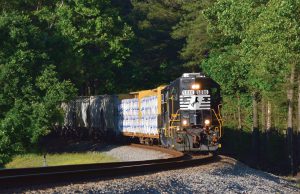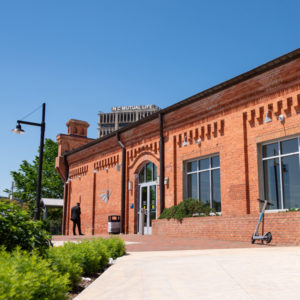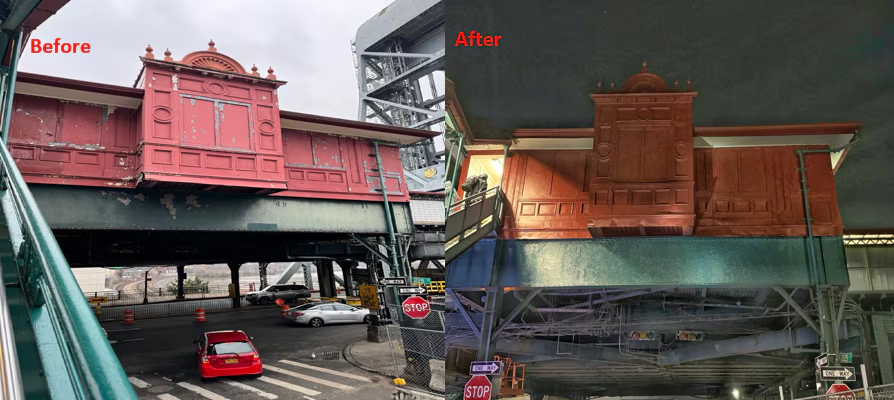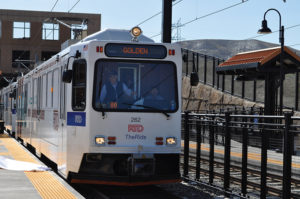FRA approves TriMet request for use of bell over louder train horn
Written by jroodFebruary 14, 2001 WES commuter trains are now operating more quietly in Beaverton, Ore. The Federal Railroad Administration has approved TriMet's request to waive certain regulatory requirements relating to WES train horns. For the SW Lombard Ave segment between SW Farmington Road and the Beaverton Transit Center, WES trains will sound a 78-80 decibel bell at each crossing, rather than the current 96-decibel horn.
The FRA approved the
elimination of the sounding of a train horn, finding the request was consistent
with railroad safety and in the public interest. The waiver is temporary and
can be revoked for safety reasons or an increase in train speed. The operator
may still blow the horn at any time for safety reasons.
In June 2005, the FRA
issued rules governing the use of train horns at grade crossings throughout the
U.S. Under the rules at a public grade crossing, the locomotive horn must sound
five times for a minimum of 15 seconds and a maximum of 20 seconds, and at a minimum
96 decibel and maximum 110 decibel level. The horn must continue to sound until
the lead locomotive or train car enters the crossing. The WES horns are around
96 decibels.
While requesting a waiver
for the Lombard segment, TriMet had also requested a waiver from the FRA to
lower the horn decibel throughout the entire alignment. However, the FRA did
not approve the waiver, and WES train horns will continue to sound at the 96-decibel
level outside the new Lombard bell segment in Beaverton.
Work is under way to create
a quiet zone in Tualatin between Tonquin Road and SW 95th Avenue that would
mean that no WES or freight train horns would sound when a train is present,
unless the train engineer sees a safety concern.
Three intersections will be
upgraded from two-quadrant gates to four-quadrant gates that will stop all
vehicular traffic movement when a train is present. This quiet zone treatment
covers about 2.4 miles of the alignment and will be added at Tonquin Road, Avery
Street and Teton.
A concrete median barrier
will be installed at SW 95th Avenue to prevent vehicles from driving around a
crossing gate. This treatment also means that WES and freight trains will not
have to sound horns at this crossing.
Wayside horns will be
installed at four crossings north of SW 95th Avenue. These horns are stationary
and located at a crossing to provide audible warnings to motorists and
pedestrians. This reduces the noise impact as it eliminates the requirement of
a horn to sound about a quarter mile from a crossing. This treatment will cover
about one mile between 95th Avenue and Tualatin Road.
Construction on the quiet
zone and installation of the wayside horns is set to begin in July and
completed by the end of the year. The cost is $3 million, with funding provided
by federal stimulus funds from TriMet and Metro, Tualatin MSTIP funds and
Washington County. Other jurisdictions along the WES alignment are also
studying noise mitigation measures.





